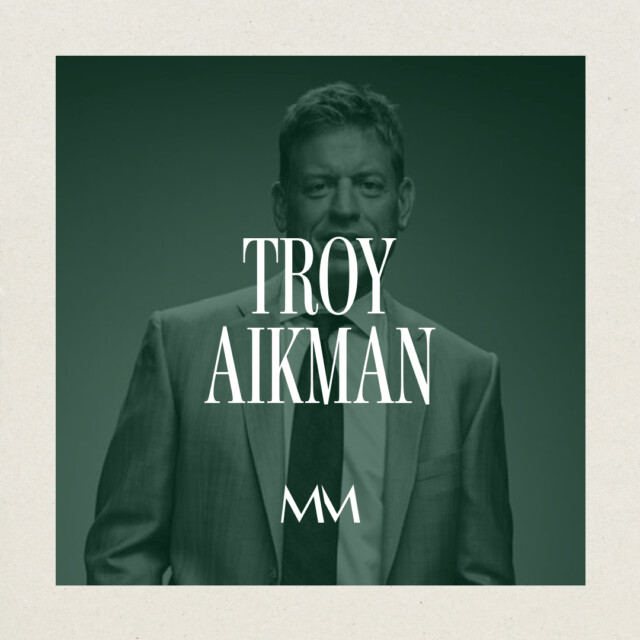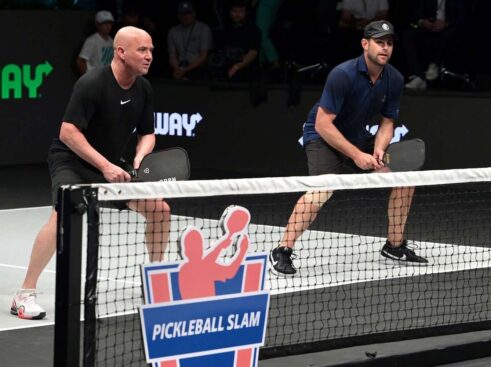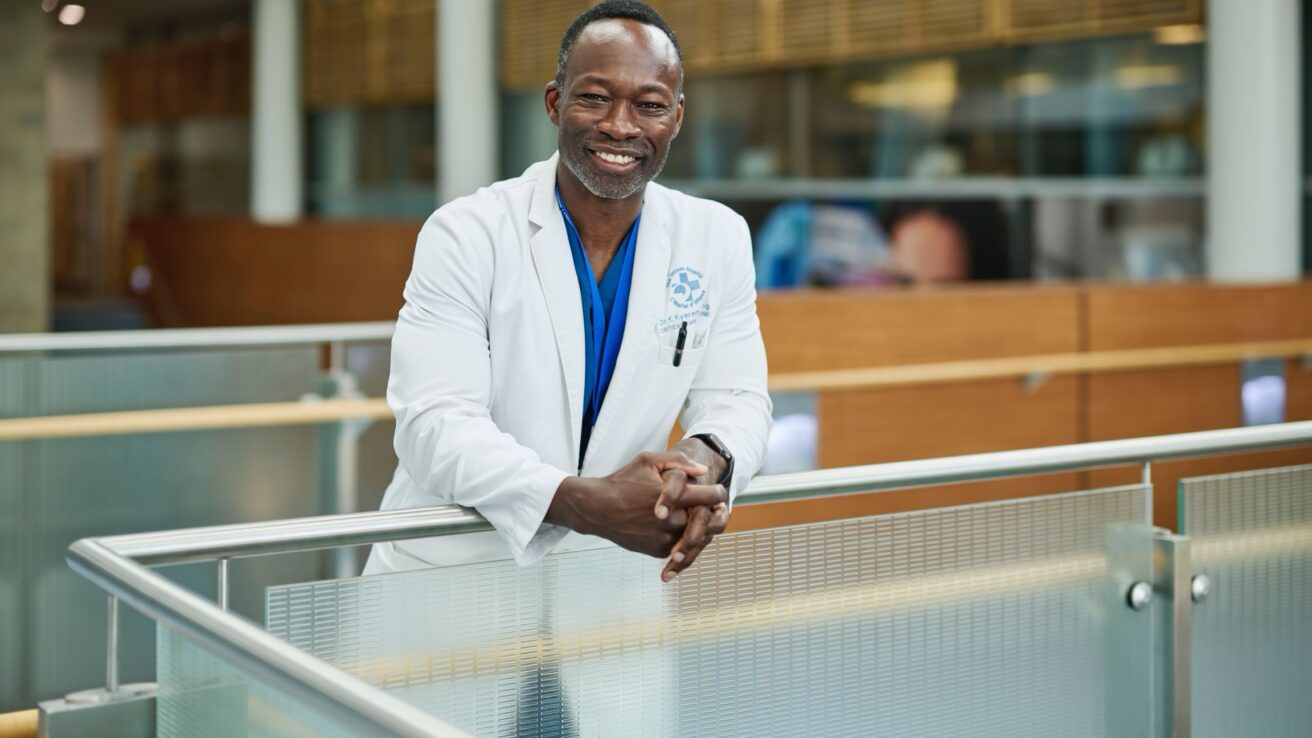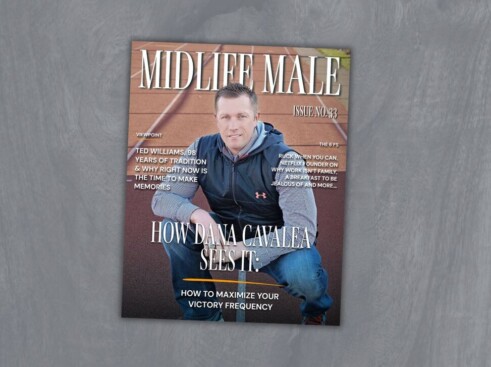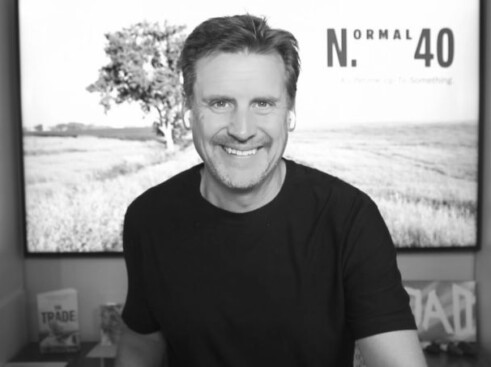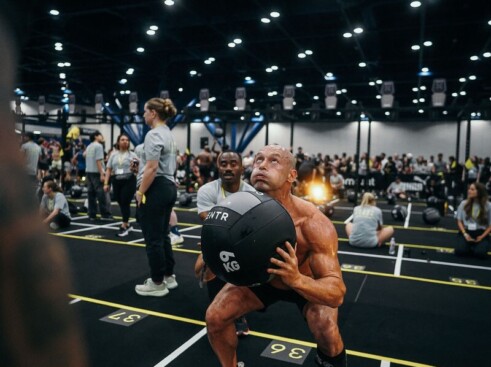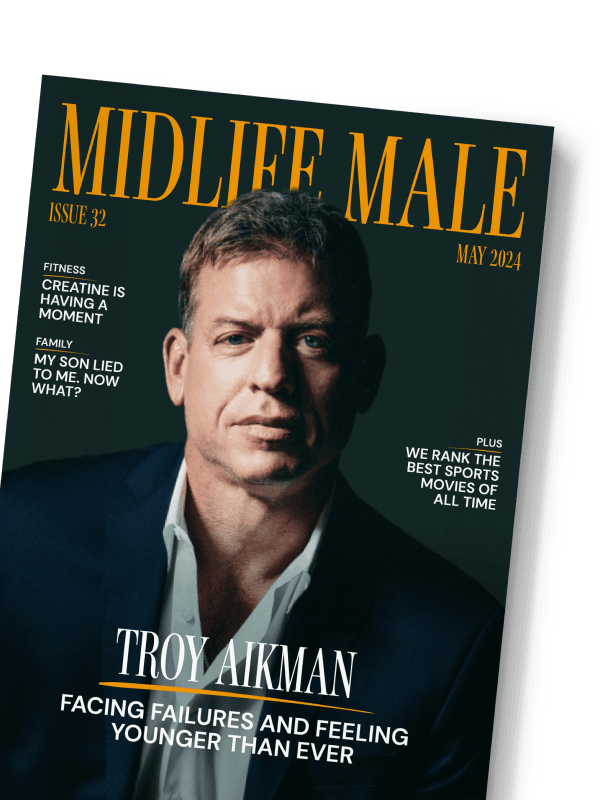I attended a conference recently and three out of the four panelists for a conversation about menopause from the male perspective were middle aged females. Doesn’t sound right, does it?
The audience was also 90% middle aged women, which begged the question: “What do they want to know about how MEN see menopause?”
While the female panelists were well-known figures in the menopause space, including Cynthia Thurlow and Jessica Shepherd, it was a lone male panelist, Dr. Kwadwo Kyeremanteng, who intrigued me the most and who I ultimately wanted to hear a lot more from.
Beyond Dr. Kyeremanteng’s professional credentials as an ER physician and author, here was someone who understood the complex dynamics of navigating midlife as a husband, father, and provider. His approach wasn’t just clinical—he lived this reality daily, both as a medical professional specializing in longevity and optimization, and as a man experiencing these challenges firsthand.
He’s also incredibly fit, impeccably dressed, and a successful entrepreneur beyond his medical practice.
The timing of talking with Dr. Kyeremanteng couldn’t have been more relevant for me. At almost 52 (next month), with my wife at 55 and in the thick of menopause, I’m literally in this phase of life where unintentional divergence in relationships happens (at least that’s what the statistics say).
While I’m dialing in my health optimization, supplementing with TRT, training daily and feeling like I’m just getting started, my wife, like many women, is wrestling with fluctuating sex drive, mood swings, and the complex journey of hormone balance. It can be a slippery slope when one partner is “dialing up” while the other might be “dialing down”— and can create distance that neither party intended (or wants).
What struck me about Dr. Kwadwo’s message was its departure from the typical narrative surrounding men and menopause. Too often, the conversation focuses solely on how men should support their partners: be more empathetic, more understanding, less demanding. While these are crucial aspects, they overlook a fundamental truth: men need advocacy too. We deserve space to address our own needs, emotions, and hormonal changes during this period. True partnership during menopause requires bilateral empathy and understanding.
I’m protective of men because, now more than ever, we get a bad rap. We’re underserved, underappreciated, and often overlooked in these conversations.
While there’s an abundance of support groups, books, and resources for women going through menopause—which is absolutely necessary and valuable—the message to men is typically one-dimensional: be more supportive. When people claim to discuss menopause from the male perspective, they’re usually still approaching it from a female viewpoint, simply telling men what they should and shouldn’t do for their partners.
Don’t misunderstand—I’m not suggesting we shouldn’t be supportive or empathetic. But men need advocacy too. We need to stand up for our needs, our feelings, our emotions, our hormones, and our own journey toward optimization, longevity, and fulfillment. Sexual satisfaction, happiness, and well-being shouldn’t be taboo topics for men during this phase of life. The empathy needs to flow in both directions.
That’s why it’s so important to have guys we can talk to.
After the panel, I seized the opportunity to speak with Dr. Kwadwo. We connected immediately over our shared perspectives on male wellness, leadership, and the importance of thriving through life’s transitions. Our impromptu conversation evolved into something more meaningful—a chance to explore menopause from a genuine male perspective, not just as supportive partners but as men navigating our own journey of growth and adaptation during this significant life phase.
This interview isn’t just about menopause—it’s about how men can maintain their vitality, purpose, and positive impact while supporting their partners through this challenging transition. It’s about creating a more nuanced dialogue that acknowledges both partners’ experiences and needs. Through Dr. Kwadwo’s insights and personal journey, we’ll explore how men can lead by example, prioritizing their own well-being while fostering stronger, more understanding relationships. Here is our conversation:
How I See It, With Dr. Kwadwo Kyeremanteng
MLM: Did you always want to be in medicine?
Dr. Kyeremanteng: Pretty early, pretty early on. I was a pretty sickly kid. I had pretty significant asthma that landed me in the hospital quite frequently, and I had this incredible pediatrician. His name was Dr. Conrad. You enter this state where you’re coming in here, and you can’t breathe, and you’re scared. Dr. Conrad would walk in, put his hand on your arm and hand on your chest, put his hand on my mom’s shoulder, and be like, “It’s going to be okay.” And that feeling when he walked in the room was everything.
MLM: And to you, that inspired the goal?
Dr. Kyeremanteng: Absolutely. I had the goal of wanting to bring that to people, wanting to serve in that way. I wasn’t sure exactly how that would land—I wasn’t sure if I was going to be a pediatrician myself—but that was the dream initially. Eventually, I worked my way into medical school and found my specialty after a bit of trial and error.
MLM: What is your specialty?
Dr. Kyeremanteng: I wear two hats. My real passion is in ICU. I’m an intensive care physician. I also run our department at The Ottawa Hospital. Before finding the ICU, I thought I maybe wanted to be a pediatrician, but it wasn’t the right environment for me. I considered surgery, but my hands weren’t the best, and the lifestyle was incredibly difficult.
MLM: So how did you land on ICU?
Dr. Kyeremanteng: I did this elective in intensive care in Calgary, and it was almost instantaneous. I walked into the ICU—some trauma patient needed a tracheostomy, someone was bleeding from their intestines and needed to be acutely resuscitated. We were working as a team, thinking creatively to solve all these issues, and I thought, This is my home. This is where I need to be. I fell in love with it. I knew at that point that this was what I wanted to do.
MLM: Did you make yourself more marketable as well?
Dr. Kyeremanteng: Yeah. Later on, I realized I needed to stand out, so I trained in palliative care as well. I really admired one of our palliative care physicians, Dr. John Seely. Similar to Dr. Conrad, he brought calm during really difficult times for families. I thought it would be a great complement to intensive care, especially since about 20% of our patients don’t survive.
MLM: How old are you?
Dr. Kyeremanteng: I’m 47.
MLM: Lifestyle-wise, you’re in amazing shape. As a husband, father, doctor, ICU specialist, author, and speaker, how do you manage it all? What’s your routine?
Dr. Kyeremanteng: Great question. I think the key is prioritizing health and fitness—it’s non-negotiable. I’ve decided I’ll do something considered exercise every day, no matter what. It could be a quick five-minute HIIT workout or an hour-long gym session.
MLM: What kind of workouts do you focus on?
Dr. Kyeremanteng: At this age, I focus on whole-body, high-intensity interval training or variations of that. For example, I might do a Tabata kettlebell swing before work—anywhere from 5 to 10 minutes, depending on time. I do a lot of landmine exercises these days, like cleans and jerks. On days off, I’ll go to classes for the community feel.
MLM: Any other activities?
Dr. Kyeremanteng: I play hockey and softball. I try to get on the ice once or twice a week. Plus, I’m on the ice with my boys for their hockey teams, so I get exercise that way too.
MLM: What about nutrition and supplementation?
Dr. Kyeremanteng: Nutrition is probably the most important lever for health. I skip breakfast—I do time-restricted eating, usually between noon and 7 PM. My focus is on protein—150 to 200 grams a day. For supplements, I take creatine, fish oil, magnesium at night, and collagen in my coffee. Occasionally, I’ll do protein shakes or BCAAs if I’m busy.
MLM: So you keep it simple with nutrition and supplements?
Dr. Kyeremanteng: Yeah, basics. Nothing flashy—just good quality protein, good carbs, and manageable supplements. You go to conferences, and it can feel overwhelming with all the options out there. But when I talk to the most experienced people, it always comes back to the basics: push, pull, classes, eat well, sleep well. No rigidity, just balance. Life gets busy—you have to adapt while keeping those pillars in place.
MLM: And if you get off track?
Dr. Kyeremanteng: You tweak things. If I’ve been drinking more or eating too much, I’ll do a day or two of single-meal fasting to reset. It’s about self-awareness—adjusting when necessary but keeping the overall trajectory steady. Over weeks and months, it works out.
MLM: Let’s talk about the book. From what I’ve gathered, it’s not a medical book—it’s about leadership, right?
Dr. Kyeremanteng: Yes, it’s about leadership. Honestly, I never thought of myself as a leader. But certain opportunities and circumstances, especially during the pandemic, pushed me into that role.
MLM: What inspired you to write the book?
Dr. Kyeremanteng: During COVID, I saw the opposite of leadership: fear-based decision-making, which in my line of work leads to bad outcomes. I couldn’t sit on the sidelines anymore. I was vocal in the media and on social platforms about issues like kids’ mental health, marginalized communities, and the lack of focus on metabolic health.
MLM: Was speaking out difficult?
Dr. Kyeremanteng: It was. My wife and I had to make a decision—do we lean into our values and speak out, or stay silent? We chose to do the right thing, even though it came with blowback.
MLM: What kind of blowback?
Dr. Kyeremanteng: We faced attacks on our family, lost friends, and had threats to my job. It was rough, and I was close to burnout. At my worst, I was juggling the ICU leadership role during the Omicron wave, staff shortages, and public criticism.
MLM: Did that change your perspective on your career?
Dr. Kyeremanteng: Absolutely. It pushed me to diversify. I started speaking, monetizing my podcast, and developing supplements. Initially, it was just for fun, but I realized how important it is to have multiple streams of income and outlets for impact.
MLM: So the book is about leadership through adversity?
Dr. Kyeremanteng: Exactly. It’s about stepping up, leaning into your values, and being part of the solution. One big realization I’ve had is that true change often comes from entrepreneurs—not politicians or traditional institutions. Entrepreneurs push the envelope, create dialogues, and back their beliefs with action.
MLM: That’s a powerful realization. But let’s shift gears. As two middle-aged guys, I want to ask—how are you speeding up when so many others are slowing down?
Dr. Kyeremanteng: For me, it’s about urgency. Life is short, and I see that daily in the ICU. I’ve also had personal losses, like my mom passing away. That urgency drives me to make an impact now. I’ve seen too many people die young because they didn’t take care of their health or lacked purpose.
MLM: What advice would you give to men who feel stuck or think it’s too late to change?
Dr. Kyeremanteng: It’s never too late. Invest in your health now—it’s longevity, function, and quality of life. Being healthy improves your mood, energy, and relationships. And if you feel stuck, find something meaningful to pursue. Surround yourself with like-minded people who energize and inspire you. It’s contagious.
MLM: That energy really shows. Any closing thoughts?
Dr. Kyeremanteng: Just this: life is short, but it’s also full of opportunity if you take control of your health, your time, and your purpose. Find ways to make an impact, stay self-reliant, and embrace the mindset that you can create change.
MLM: Thank you so much for your time. This has been fantastic.
Dr. Kyeremanteng: Thank you. I’m grateful for the chance to connect. Stay in touch.
